The truth about milk is that we don’t need it. We don’t need it for calcium, we don’t need it for strong bones, we don’t need to drink cow’s milk at all to be healthy. So why did we think we needed it for so many years? How can cow’s milk actually be bad for us?
We Need Milk for Calcium and Strong Bones – One of the Biggest Marketing Myths!
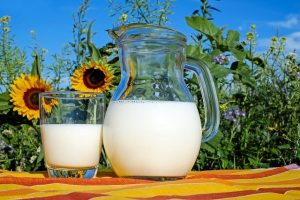
Milk for Strong Bones Myth
The facts are, milk doesn’t help with strong bones. One large-scale Harvard study followed 72,000 women for two decades and found no evidence that drinking milk can prevent bone fractures or osteoporosis. (iNourishGently). Another study of more than 96,000 people found that the more milk men consumed as teenagers, the more bone fractures they experience as adults. (iNourishGently).
If you want strong bones, you are better off incorporating more physical activity into your life, especially strength training workouts or activities. As we age we lose muscle, so strength training is a necessity in preventing weak bones later on in life.
Milk Calcium Myth
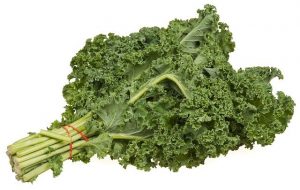
We don’t need milk for calcium. We can get it from vegetables and even milk alternatives.
1% milk contains the most calcium at 305 mg for 1 cup. But, is that really a significant amount?
Let’s look at other foods we can eat that contain calcium. Spinach has 250 mg of calcium per cup. Broccoli has 100 mg of calcium per cup, collard greens have 266 mg per cup, and kale has 179 mg per cup. Even better, almond milk has 300 mg of calcium for just 8 oz.
Milk is actually not the best source of calcium because we only absorb about 30% of the calcium due to the bioavailability. Leafy greens have a higher bioavailability so we are going to absorb more calcium from them.
Debunking Other Myths
Drinking milk doesn’t help you lose weight. If you just look at the sugar content you will see milk can be pretty high in sugar. If you remember from my blog on sugar pains, I mention we consume way more sugar than we should and it is linked to obesity. It is recommended that a woman not consume more than 25g of sugar a day (view my guidelines on sugar blog), yet nutritional guidelines are recommending drinking 3 cups a day – 36g of sugar per day. So the exact opposite is true, sugar could actually lead to weight gain. Luckily, the government stepped in and milk advertisers are no longer allowed to spew those lies.
FYI: Did you know that Ensure meal replacement shakes have up to 50g of sugar??
Milk also doesn’t provide any heart health benefits. Instead, it provides saturated fat and cholesterol which increases heart disease risks. Babies/kids don’t need milk after they are done with breast milk or formula. They don’t need to consume any type of milk. Calcium, protein, potassium are all things we can get in many vegetables in larger amounts. So there really are no benefits of milk that we can’t find in other foods.
Why Has Milk Been Heavily Promoted? Why Have We Been Deceived?
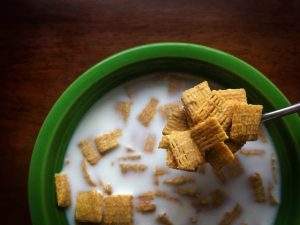 The big push to sell dairy products, specifically milk, dates back to World War I. The government created the demand for canned and powdered milk in order to provide for soldiers overseas.
The big push to sell dairy products, specifically milk, dates back to World War I. The government created the demand for canned and powdered milk in order to provide for soldiers overseas.
When the war ended there were too many farmers invested solely in the dairy industry. There was a huge supply of milk with very little demand. Since the government had created such a massive problem, they bought the milk no one wanted that was sitting in storage rotting. So the milk was given to schools, the military, and even other countries as aid. Schools educated people on the need to consume up to 3 glasses a day in order to build strong bones.
I don’t know about you, but I was usually consuming 2-3 glasses a day as a kid in the 90’s. I had a milk bag with all my school lunches, milk in my cereal at breakfast (if we didn’t have eggs), and a glass of milk with dinner. This was just the normal thing to do. My parents would tell us we needed the calcium to maintain strong bones. That is unusual to me now. I drink water with every meal, and I barely have any cow’s milk.
The national school lunch program required kids to have milk with their meals. But, that wasn’t enough…
USDA Helps Advertise Cow’s Milk
By the 1980s, our government was spending $2 billion a year on unwanted milk (PETA, 2019). Then, Reagan put an end to the bailout. However, the dairy industry came back with a plan to put money toward advertisements for milk to be approved by the USDA (which is in charge of our nutritional guidelines). So instead of the USDA working to provide us with better nutrition, they chose to help the milk industry create misleading advertisements to sell the huge surplus of milk.
Remember all those “Got Milk” campaigns? Those were USDA-approved.
Dairy products such as cheese became added into more regular food items in grocery stores and food chains. They worked with McDonald’s, Taco Bell, Pizza Hut, Dominoes, and other fast food joints to create milk-heavy (extremely cheesy) food choices. Milk was also added into more snack food products, cereals, canned soups, salad dressings, etc.
View below: How Big Government Helps Big Dairy Sell Milk
It is also interesting that during this same time frame that we were told fat was the reason for obesity, diabetes, and other health conditions, as I mentioned in my blog on How The Sugar Industry Tricked Us. Yet the USDA is pushing for higher consumption of dairy products which are some of the primary sources of artery-clogging saturated fat in our diet. Doesn’t make much sense, does it?
To get a medical point of view on the dangers of dairy consumption, take a look at the book Milk: Udder Nonsense wrote by a doctor specializing in digestive health.
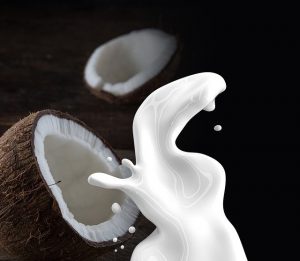
Around 58% of people consume non-dairy milk alternatives.
What is Happening Today with the Dairy Industry?
The dairy industry and the USDA still push to sell dairy mentioning it as a nutritional need. However, the dairy industry is seeing fewer sales as more people are switching to plant-based milk. The National Dairy Council has made payments to the American Heart Association, which helped develop a new report that says dairy milk should be favored over non-dairy alternatives such as almond milk for children (Physicians Committee, 2016). Today, it is estimated that around 58% of people consume non-dairy milk alternatives. The dairy industry is falling apart.
The dairy industry also continues to pays for politicians to keep dairy as a nutritional necessity. The USDA states that our country has 1.4 billion pounds of surplus cheese, and our government has dished out millions in tax dollars to support the crumbling industry (PETA, 2019).
Did you know? 1 in 4 Americans can’t even digest milk?
Is Milk Actually Bad for You?
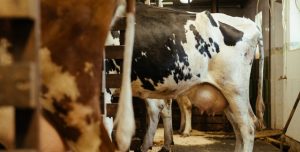
Side Effects of Cow’s Milk
As weird as this may sound, almost 60% of the population can’t properly digest milk. Symptoms of intolerance can include cramps, bloating, and diarrhea. In general, whether or not you are lactose intolerant, milk is hard for anyone’s body to digest. Our bodies were never meant to digest cows milk, it is supposed to be for baby cows.
Milk has been linked to many health issues including diabetes, colic in kids, breast cancer, lung cancer, prostate cancer, ovarian cancer. Milk can lead to acne problems due to inflammation from the sugar, hormones in milk, and the fact that cow’s milk is hard for the body to digest. It also contains casein a protein that can supposedly cause food addiction and may be linked to people’s inability to give up cheese.
To read more on the problems dairy can cause and how it has relieved symptoms of obesity, ear infections, allergies, eczema, and more, check out the book Whitewash: The Disturbing Truth About Cow’s Milk and Your Health. It also talks about osteoporosis being caused by drinking too much milk.
Does Cow Milk Cause Hormone Problems?
There are many articles and studies that say no, but a few sources that do believe this is a problem. But, how do you feel about consuming milk from cows that are pregnant, and have hormones from both the male and female cows which are in the milk? Dairy milk accounts for about 80 percent of estrogen consumed through the human diet, along with the fact that milk from pregnant cows (which is how all milk products are produced) contains about 33 times as much estrogen as milk from non-pregnant cows. (McClees). This excess estrogen in our bodies could cause mood swings.
In addition, many cows are given a genetically modified growth hormone to produce more milk than what is natural. As I mentioned in a previous blog on healthy meats, cows are also often fed GMO corn and soy and treated with antibiotics. They can also consume pesticides from their feed. All of these things are present in the milk, and likely the combination can create hormonal problems in the body, along with inflammation.
Understanding Artificial Growth Hormones in Cow Milk
 The artificial growth hormones injected into the cows to increase milk production is called rbST or rBGH, and it was actually created by Monsanto. Although there is little to go on as to how this affects humans, many agree it is not healthy for the cows. These artificial growth hormones have increased the risk of tumors, mastitis, inability to get pregnant, and lameness by 50% in cows. Therefore, Canada, Europe, Japan, Australia, New Zealand, and Argentina have banned the use of rBST.
The artificial growth hormones injected into the cows to increase milk production is called rbST or rBGH, and it was actually created by Monsanto. Although there is little to go on as to how this affects humans, many agree it is not healthy for the cows. These artificial growth hormones have increased the risk of tumors, mastitis, inability to get pregnant, and lameness by 50% in cows. Therefore, Canada, Europe, Japan, Australia, New Zealand, and Argentina have banned the use of rBST.
The FDA approved it for use in the U.S. in 1994 and it has been in use ever since. They are convinced it is harmless to humans. But, in recent years many farmers have chosen to avoid the use and label their products as rbST free. In fact, restaurants such as Chipotle and Starbucks have also decided to be rBST-free. Many dairy farmers have made this switch because consumers don’t want added hormones in their milk.
How does Monsanto feel about this? Monsanto is not on board and has actually tried to fight this new labeling practice. They want to take away consumers’ rights to know what food is rBST free. Although labels say rBST free, it is possible other synthetic hormones are present that consumers just don’t know about yet. So, if you want to avoid synthetic hormones you are best off choosing organic milk or plant-based milk. Read more on this here.
How Can We Make Better Milk & Dairy Choices? What Are Alternatives?
Find out more in my blog: How to Choose Healthy Dairy products! I will discuss: Is dairy bad for you? Is raw milk or organic milk better for you? Plus, how we can make better choices when it comes to dairy, and what are the best alternatives.
Download this Free Guide:
Roadmap to Eating More Real Food & Reducing Sugar Consumption
View More Healthy Eating Blogs
- 8 Tips on How to Eat Less Packaged Food (Less Junk Food)
- Over 30+ Gluten and Dairy Free Breakfast Ideas (& Sugar-Free)
- Reading and Decoding Food Labels & Toxic Ingredients
- 11 Superfoods for a Diet Higher in Nutrients
- 30 Clean Snacks and Desserts (Gluten-Free, Sugar-Free & Dairy-Free Options)
- How to Choose Healthier Dairy Products & Alternatives to Dairy
- Guidelines & Steps to Reduce Sugar Intake
- Wild Caught vs Farm Raised Fish – What is the Difference? Which is Healthier?
- How to Choose Healthier Meats
- What Does Non-GMO Mean? Are GMOs Safe?
- How to Eat Real Foods & Why It Is Essential for Your Health
- When is Organic Really Worth it?
- Organic vs. Natural: What is the difference?
- Is White Flour Bad For You? Should We Be Eating Less Carbs?
- How the Sugar Industry Tricked us for 50 Years
- Sugar Pains? Sugar – One of our Biggest Enemies!
Research study showing the dangers of milk: https://pubmed.ncbi.nlm.nih.gov/11566656/
Resources:
Carlson, Caroline. (2020, February 27). Organic Valley/rBGH Decoded: What you Need to Know about Hormones in Dairy. Retrieved from: https://www.organicvalley.coop/blog/rBGH-decoded-what-is-bovine-growth-hormone/
Barton, Gina. Scheltens, Liz. (2016, May 2). Vox/How Big Governments Help Big Dairy Sell Milk. Retrieved from: https://www.vox.com/2016/5/2/11565698/big-government-helps-big-dairy-sell-milk
Physicians Committee/White Lies? Five Milk Myths Debunked. (2016, February 11). Retrieved from: https://www.pcrm.org/news/blog/white-lies-five-mythsdebunked#:~:text=Myth%201%3A%20Milk%20builds%20strong,prevent%20bone%20fractures%20or%20osteoporosis.
PETA/Got Conned? How Big Dairy and Big Brother have Duped You for Decades. Retrieved from: https://www.peta.org/blog/dairy-industry-conspiracy/
McClees, Heather. One Green Planet/This is How Dairy Affects Your Hormones. Get Ready to #DitchDairy Today!. Retrieved from: https://www.onegreenplanet.org/natural-health/how-dairy-affects-your-hormones/
iNourishGently/THE TOP 5 BIG FAT LIES ABOUT MILK DEBUNKED. Retrieved from: https://inourishgently.com/milk-myths-debunked/
McClees, Heather. One Green Planet/5 Things You Should Know About the Link Between Dairy and Acne. Retrieved from: https://www.onegreenplanet.org/natural-health/the-dairy-and-acne-connection/
The Organic & Non-GMO Report/Monsanto urges FDA to stop “misleading” rBST-free labeling. (2007, May) Retrieved from: https://non-gmoreport.com/articles/may07/misleading_rBST-free_labeling.php
National Osteoporosis Foundation/A Guide to Calcium-Rich Foods. Retrieved from: https://www.nof.org/patients/treatment/calciumvitamin-d/a-guide-to-calcium-rich-foods/
I have a Wellness Coach Certificate, I'm an entrepreneur, an innovator, writer, and artist. My expertise includes over 7 years of marketing, research, and developing content for holistic health businesses. Plus, my own personal journey of becoming chronically sick: understanding what went wrong, and finding a way to heal and live a healthier life. I have a passion for wellness with a wealth of knowledge surrounding: wellness, flaws in healthcare, root causes for chronic illnesses, and alternative treatments.

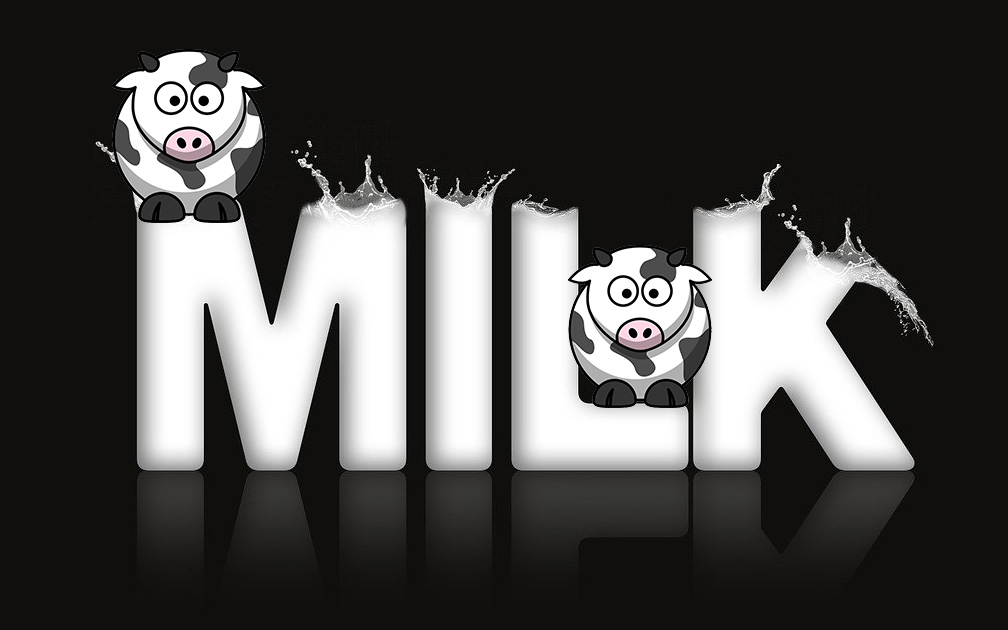
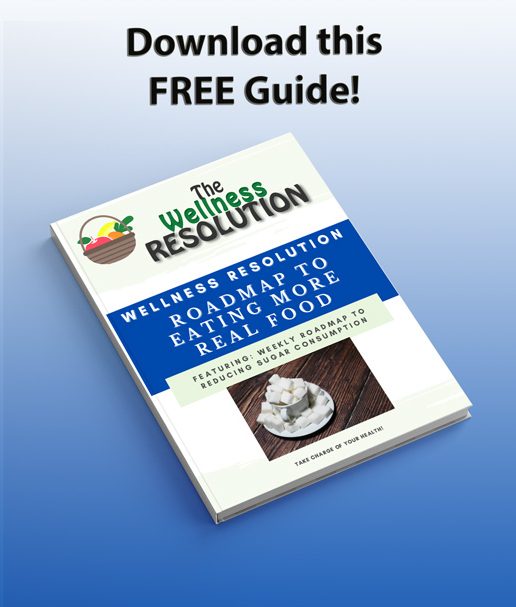

Great, informative blog, looking forward to reading more!